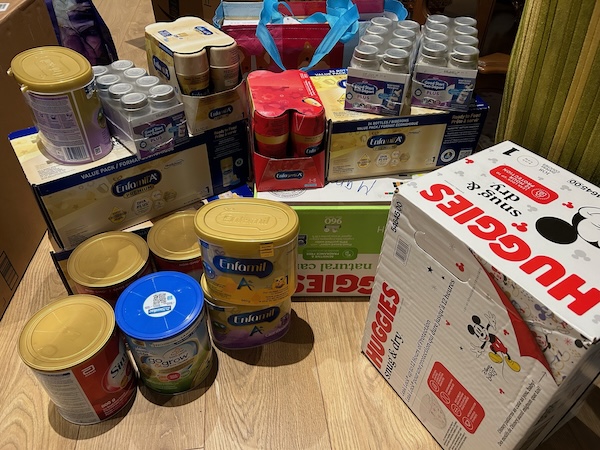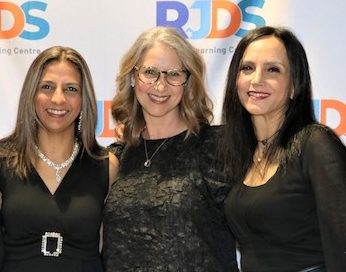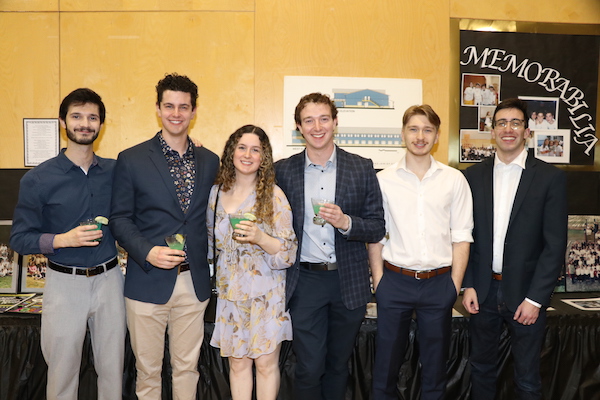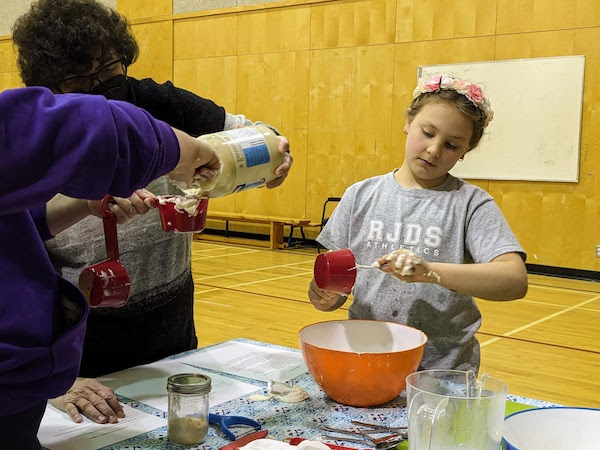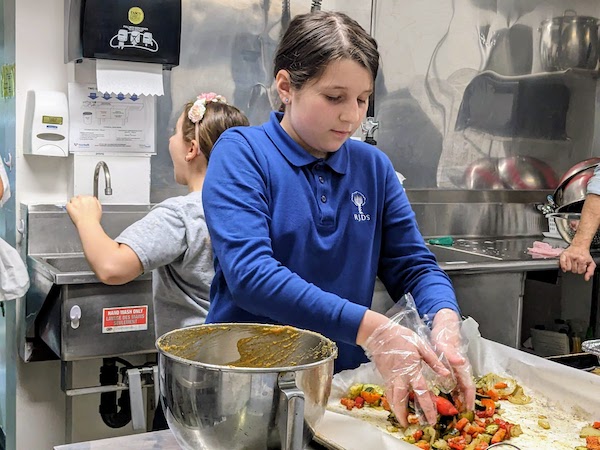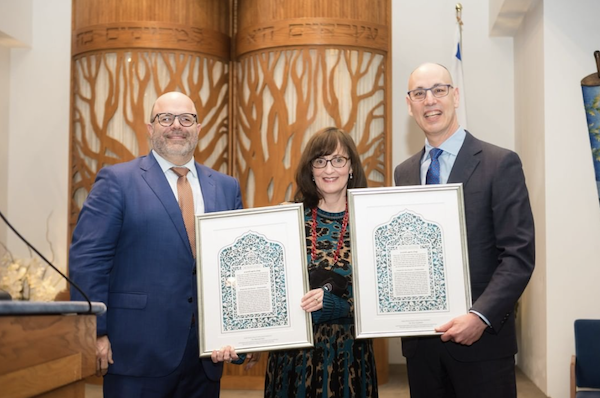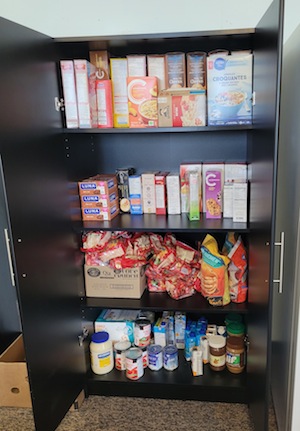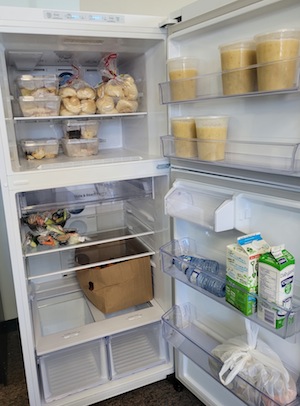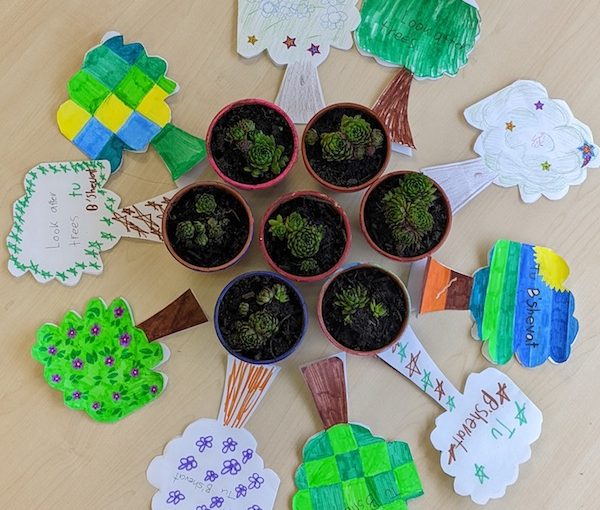For the second year in a row, Richmond Jewish Day School hosted a STEAM-J Night for its families. The event involves an interdisciplinary approach, integrating knowledge, methods and perspectives from multiple disciplines – science, technology, engineering, arts and mathematics – all through a Jewish lens.
As part of the STEAM-J Night, which took place Jan. 30, children in RJDS’s Early Learning Centre focused on exploring trees through art. The Early Learning Centre emphasizes a play-based philosophy and an emergent curriculum tailored to children’s interests. Inspired by Tu b’Shevat and the kids’ fascination with printmaking and tracing shapes, participants compared the lines on their hands with the lines on leaf veins. Using ink pads, each child created palm prints, observing the uniqueness of their own hands.
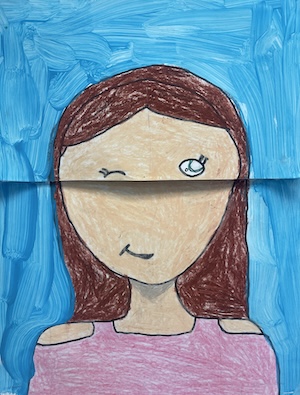 The kindergarten and Grade 1 class explored various methods to learn Hebrew vocabulary. By combining Hebrew with art, students designed and created a game where Hebrew letters corresponded to pictures they drew. They then invited their parents and guests to participate and test their Hebrew knowledge. Additionally, the children crafted clay dioramas depicting the components of an Arctic biome. During this process, they learned about how animals adapt to changing weather and the climate.
The kindergarten and Grade 1 class explored various methods to learn Hebrew vocabulary. By combining Hebrew with art, students designed and created a game where Hebrew letters corresponded to pictures they drew. They then invited their parents and guests to participate and test their Hebrew knowledge. Additionally, the children crafted clay dioramas depicting the components of an Arctic biome. During this process, they learned about how animals adapt to changing weather and the climate.
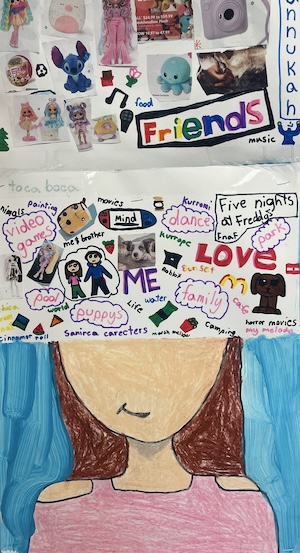
The Grade 3 and 4 class learned a song written by an Israeli children’s author called “All About Me” and performed a dance to go along with it. Inspired by the same song, the students painted a self-portrait with a top part that lifts up so that people can see some of their favourite aspects of life, their individuality. They then put their graphic design skills to the test and created a PowerPoint presentation about early explorers and their contributions to the world. For their final STEAM-J project, the students put on their engineering hats and created a 3D scene with animal crossings built into different cityscapes to help wildlife thrive.
The upper grades demonstrated their learnings by taking their favourite games, such as Bingo and Rummikub, and translating them into Spanish. The goal of this project was to strengthen Spanish vocabulary, interaction, creativity and group work. They also honed their graphic design and research skills by creating digital comic strips on Jewish history, focusing on a Jewish prophet or king. They learned about Newton’s Laws of Motion through a hands-on activity where they demonstrated the centre of gravity by making a balancing heart. They experimented with their completed hearts by adjusting wooden skewers and clay balls to take the hearts from a balanced to unbalanced state and back to the centre of gravity point again.
A multi-disciplinary approach to education can help bridge the gap between different subjects and build students’ confidence in an increasingly complex and technologically advanced world. By integrating insights from the STEAM fields with Jewish culture and identity, students can develop a versatile skill set that fosters critical thinking, creativity and adaptability.
– Courtesy Richmond Jewish Day School


